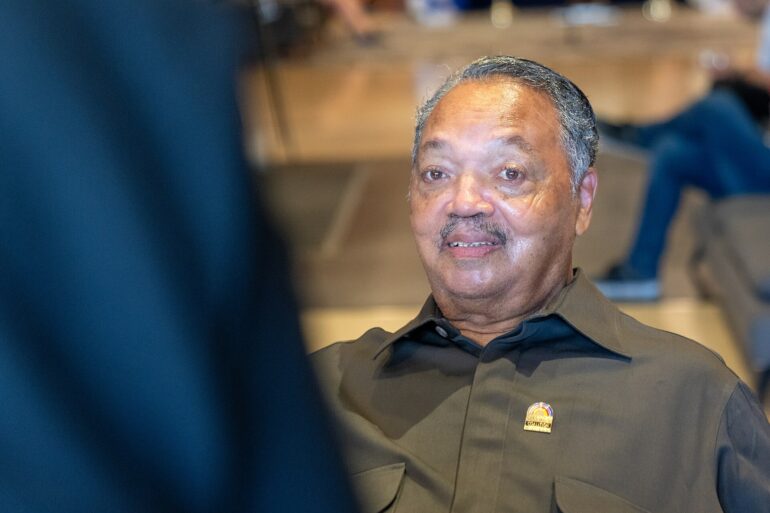Reverend Jesse Jackson, a longtime civil rights activist and one of the most recognizable figures in American political life, has now reportedly been hospitalized in Chicago, his organization confirmed on Wednesday. Jackson, 84, is “under observation for Progressive Supranuclear Palsy (PSP),” according to a statement from the Rainbow PUSH Coalition, the group he founded and led for decades.
The organization said Jackson “has been managing this neurodegenerative condition for more than a decade,” and that his family “appreciates all prayers at this time.” Jackson was originally diagnosed with Parkinson’s disease before doctors determined last year that his symptoms were due to PSP, a rare and debilitating disorder that affects movement, balance, and cognitive function.
For more than half a century, Jackson has been a prominent figure in American public life, blending religious leadership with political activism. His career began in the 1960s when he left the Chicago Theological Seminary to join the Reverend Dr. Martin Luther King Jr. in the fight for civil rights. Working alongside King, Jackson rose to prominence as one of the younger leaders in the movement, known for his energy, eloquence, and ability to mobilize supporters.
In the years following King’s assassination, Jackson sought to continue his mentor’s legacy through grassroots organizing and political advocacy. He founded Operation PUSH (People United to Serve Humanity) in 1971, an organization aimed at expanding economic opportunities for African Americans and promoting social justice. In 1984, he established the Rainbow Coalition to broaden his political base, later merging the two groups into the Rainbow PUSH Coalition, which continues to operate from Chicago.
Jackson’s political ambitions led him to run for the Democratic presidential nomination twice, in 1984 and 1988, campaigns that emphasized voting rights, economic fairness, and minority representation. His 1984 bid marked the first serious presidential campaign by a major Black candidate, helping to register millions of new voters and reshaping the Democratic Party’s coalition for decades to come.
Though a steadfast Democrat, Jackson’s relationship with the party establishment was often uneasy. His populist message—focused on working-class Americans, economic inequality, and moral leadership—frequently clashed with the party’s more moderate figures. Still, his political influence endured, and his presence at national conventions and public events remained a symbol of the civil rights generation’s ongoing impact.
Jackson’s health has declined steadily in recent years. His diagnosis of Parkinson’s disease in 2017 limited his public appearances, and by 2023 he had formally stepped down as president of the Rainbow PUSH Coalition, marking the end of a six-decade career in public service.
Despite ideological divides, figures across the political spectrum have acknowledged Jackson’s historic role in shaping modern American activism. His leadership connected the moral urgency of the civil rights era to broader movements for social and economic justice, even as critics charged that his political influence waned in recent decades.
As the Rainbow PUSH Coalition called for prayers, Jackson’s hospitalization marks another turning point for a figure whose life and career helped define the moral and political landscape of postwar America.



